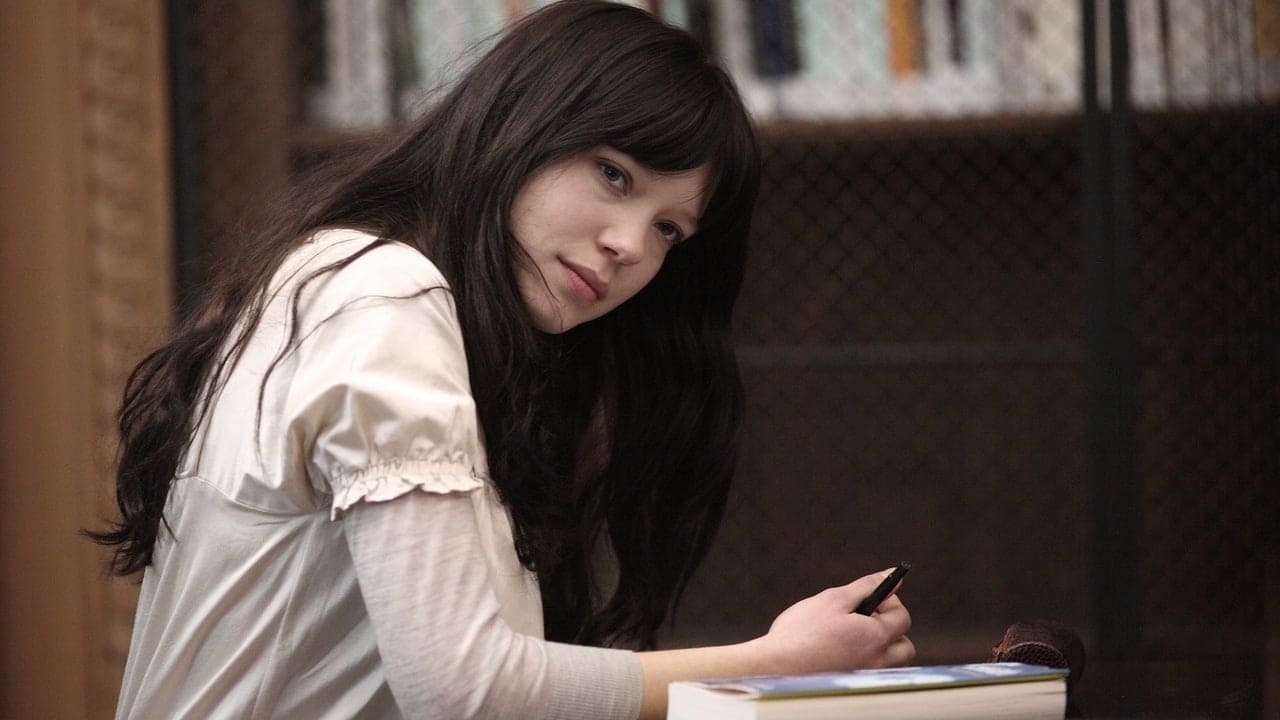

Exactly the movie you think it is, but not the movie you want it to be.
... View MoreThe movie really just wants to entertain people.
... View MoreIt is a whirlwind of delight --- attractive actors, stunning couture, spectacular sets and outrageous parties.
... View MoreThere is definitely an excellent idea hidden in the background of the film. Unfortunately, it's difficult to find it.
... View MoreThis film is a hidden gem for the lovers of various French traditions: epistolary literature of 17th and 18th century, the breeze of French philosophy of love, friendship and education,, view at old traditional environment of Parisian schools mixed with contemporary teaching styles, love intrigues and tragic resolutions, etc. Without knowing its French context, its difficult to grasp the charm of this movie. Love relations are mostly temporary, no matter how intense they were. Still, in all that mess, from time to time, someone is always ready to die or to kill for it. That is the substance of French literature, art, philosophy, and its always over and over joy to observe it, in cinematic works like this. Especially with two eye-candies such as Lea Seydoux and Luis Garrel, who at the same time, happen to be good actors. Two songs played in French fit very well the movie, the other songs sung in English were actually total misfit. French film for the French culture lovers. Recommended for calm rainy afternoons.
... View MoreFirst half hour of this films wanders among characters' stories and relationships. They are too many of them to keeping track of. And the story never starts. What is going on? First Junie's action occurs after 18 minutes. She kisses Otto. And then everything turns gray, undefined. Nemours falls in love. She realizes that but doesn't react clearly. Other stories appear in the middle. But we don't have idea what's the point in all this. When the love triangle is about to close, the writer throws one his character into the void. The only interesting and visible conflict in the movie dies before seeing the light. And we are back to an ambiguous situation where the characters don't know what they want. And in turn don't do anything concrete. The end is more of the same.The main character doesn't care too much about anything. And then we don't care too much about the movie. There is almost no conflict during the film, and when it appears it disappears immediately.
... View MoreThis is a lovely, deliberate, melancholy look into the fairy-tale lives of pale, beautiful, preternaturally graceful high-school students in Paris - a dreamy, pearly, wintry Paris on which the harsh sun never, ever shines.The Beautiful Person is so hypnotically beautiful that it drew me through the somewhat jarring adjustment I had to make from my placid late-middle-aged American world into theirs, which teems with sex and longing, but - Oh, my! - it was worth it. This movie is luxurious and delightful.Some of those who do not like it may be unwilling or unable to make such a cultural adjustment, but those who do will be rewarded. Earlier reviews here encouraged me to hang in there through the rough patches in the beginning, when I could not even tell who was who and doing what with whom. Those reviews also hinted that I might be slightly disappointed after Christophe Honoré's last movie, the remarkable Love Songs (Les Chansons d'amour). I was not at all. This is a sadder movie, but it is no less deeply satisfying.Like Love Songs, seeing this once is not enough: I need my own copy so I can watch it over and over. Also like Love Songs, I expect the pleasure it gives will grow richer with each viewing.Something nice I just realized: there are no drugs in this movie, hardly any alcohol (none at all among the kids), no vomiting, no farting, no bullying, no mindless cruelty or grossness of any kind. In other words: This is not an American movie for American teenagers. It is probably not even a realistic view of Parisian teenagers (even they must have a few pimples), but realistic or not it is a joy to behold.
... View Moreand that pretty well sums up the deepest message of this adaptation of "La Princesse de Clèves". Having seen this at the 33rd Cleveland International Film Festival, I will admit to not having an appreciation of Christophe Honore's other work, have not read the book, nor did I recognize any of the actors. The film is put together reasonably well technically. Everyone is young, thin and good-looking, with many a fine pout below a classic Gallic countenance. There were (too) many relationships to track on a first viewing, and I did not understand the motivation for most of the characters. Why does everyone fall in love with Junie? Why does she break down and cry in class? As a high school-age tale, the self-absorbed interpersonal world is apt, with enough sexual tension and romantic intrigue to satisfy the requirements of this genre.
... View More